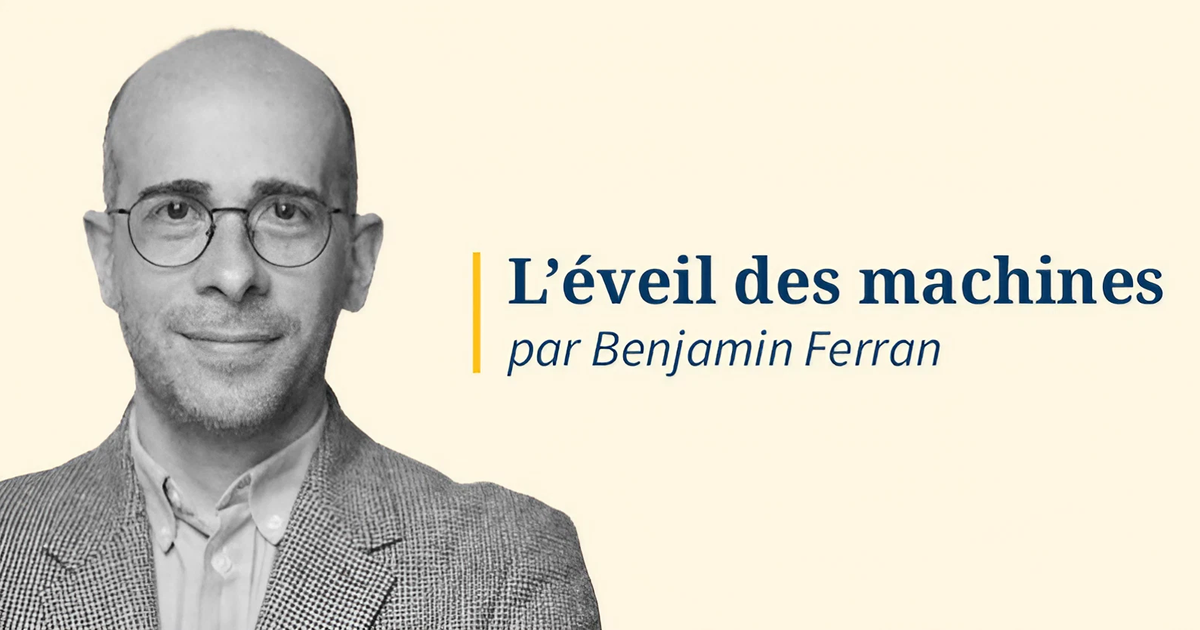Chemistry is often something that bangs and stinks: Reactions are chaotic, disruptive by-products are formed, and the end product has to be cleaned at great expense.
But chemistry can also be something that just clicks: Under normal conditions, molecules react with each other in an orderly manner, and in the end the desired compound is miraculously formed.
This concept – the »click chemistry« – was honored with the Nobel Prize for Chemistry this year.
I wondered if this was also decided because the approach behind it can be transferred to other areas of science, to work and even in everyday life: the ability to solve complicated problems in an amazingly simple way.
According to the Royal Swedish Academy of Sciences in Stockholm, this year's prize is "largely about conceptualization".
It's about »not making things too complicated, but working with what is easy and simple«.
The three laureates—Carolyn Bertozzi (Stanford University), Morten Meldal (University of Copenhagen), and Barry Sharpless (Scripps Research Institute in La Jolla)—proved that as they explored one of chemistry's biggest problems: how to bring Molecules that don't really want to react with each other to form a chemical bond?
The principle is familiar from the seat belt in a car
Of course, with effort, energy and patience you can produce an incredible number of substances in the laboratory and in chemical factories, but isn't there an easier way?
The answer: you provide one molecule with a belt tongue and the other molecule with a belt buckle, so that you can – click – connect them to each other.
The principle is familiar from the seat belt in a car.
Azides and alkynes have proven themselves as chemical components of the plug-in system because they like to bond with each other.
So chemists first prepare different molecules with azides and alkynes – which is technically quite easy – and plug them together.
You don't have to understand all of this in detail to learn from the Nobel Prize winners: you can solve a surprising number of problems by thinking until it clicks.
Heartfelt
Your Jörg Blech
I also recommend you:
Bisons were released into the wild in the Rothaargebirge in 2013
- but forest farmers tried to prevent them from settling there.
The dispute occupied several courts - is the species protection project about to end?
Two astronauts from the USA, one from Japan and a Russian cosmonaut
have made their way to the International Space Station.
It is the first joint mission by the space nations Russia and the USA since the Russian invasion of Ukraine.
»Star Trek«, Schrödinger's cat and we
-
three quantum researchers are awarded the Nobel Prize in Physics.
Their findings contradict any everyday experience - and reveal where Einstein went wrong.
Researchers have scrutinized the
legendary treasury of coins from Trier
and have discovered a historical hoax: Did Roman emperors have gold coins forged in order to improve the state treasury?
"The Neanderthals are not extinct, they are in us"
- a SPIEGEL interview with Svante Pääbo, the new Nobel Prize winner for physiology or medicine.
So far, life only seemed possible on Earth-like planets,
but now distant celestial bodies are being targeted: the Jupiter moons Europa and Ganymede, for example, under whose ice layer huge oceans are suspected.
Space probes will soon be looking for extraterrestrial organisms there.
This summer in Europe has
been the hottest on record
.
But that's just the beginning: Temperatures of more than 50 degrees could soon prevail around the Mediterranean.
picture of the week
Stuffed animals and mute skeletons
seem to fascinate people in a special way.
One not only looks into the innermost being of other creatures, but is also reminded of one's own transience.
Visitors silently look into the showcases that make a pilgrimage through the Department of Natural History of the Eötvös Loránd University in Budapest on a night of science.
(Feedback & suggestions? )


/cloudfront-eu-central-1.images.arcpublishing.com/prisa/4RITWNCKAZFB3I3MBXYYKH6YDI.jpg)






